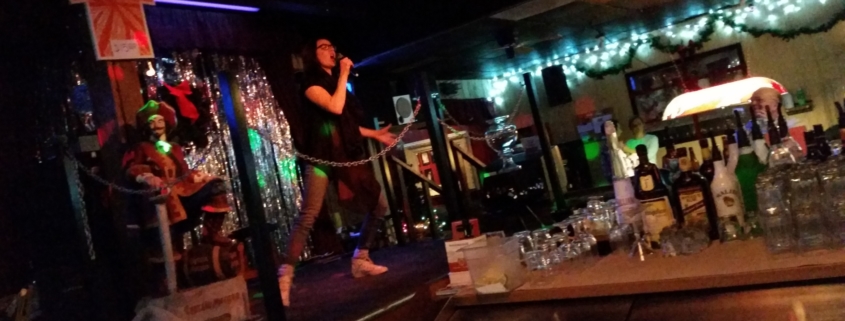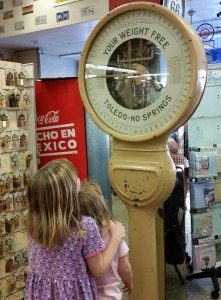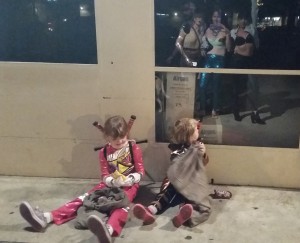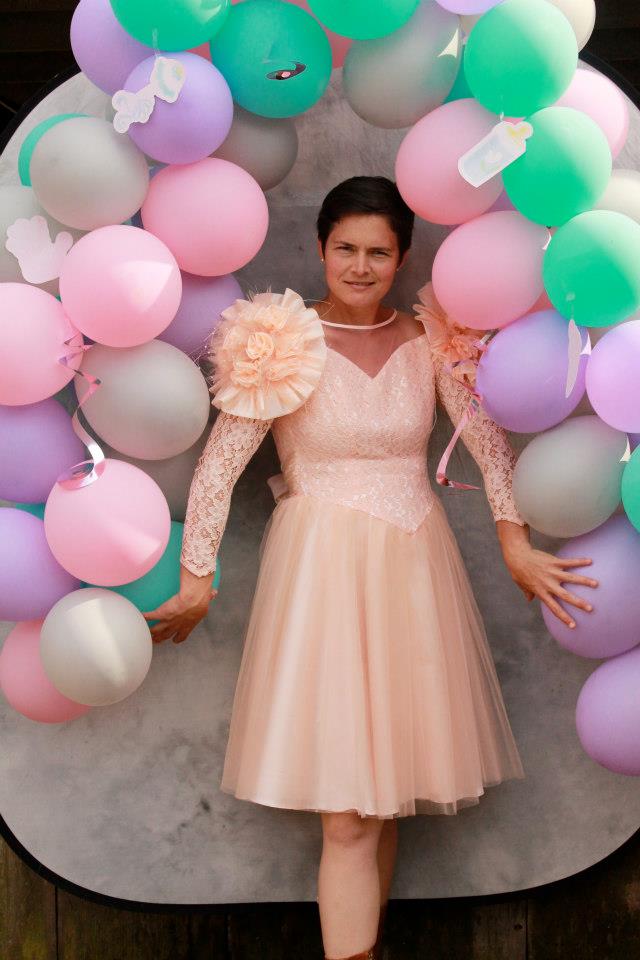On Fear, and the Location of My Ass
I am the oldest of three sisters. My youngest sister, Lizzy, calls me a “joy hoarder.” What she means is that if something (a book, a song, a piece of sky) gets my pulse up, I take pains to make sure no one knows. Think of Scrooge McDuck. He has a vault full of gold coins with a diving board in it, so that he can plunge headlong into his money as the spirit moves him. That’s me, too. Except that I’m backstroking through a panic room full of unspoken affections and exclamations and exaltation. I imagine a knock on my steel door and I shout “Go away! Nobody’s home!” And I snuggle back into my private treasure, having averted all risk of having my soft humanity discovered.
I applied to MFA programs so I could get rescued from myself. I thought that if I went back to school, I could figure out how to be an eloquent sharer and less of an apparently impassive robot. And so, last spring, in some sort of fugue, and with my vault reaching critical mass, I sent out applications. I started school and assumed that soon someone would teach me how to gather my thoughts into respectable coherence. The clutter of my feelings, the delight and heartbreak, could be laid straight. I would emote, but I would be airtight and self-assured. The point is, I finally wanted to share.
* * *
The nice thing about sisters is that just when you think a mask of stoicism makes you look smart and discerning, they let you know that you are being an asshole. Sisters tell you when you have salad in your teeth, spiritually speaking. They know that your miserliness, like all miserliness, is just a byproduct of fear, fear, fear.
But risk aversion also exists in the context of a society which tells us simultaneously how threatened we are and how we should never let them—our terrorists, our readers, our children—see us scared. What happens when I admit I am moved, or afraid. What horror do I open myself up to? What mistakes might I make?
A gentle reminder from one’s sister is particularly apt when one would like to make good art. They remind you that, when it comes to art (when it comes to love), if your ass is not on the line, your ass is likely in the wrong place.
By way of random illustration: I speak Italian. I love the languid way the language sounds. I love that, compared to other languages on this shrinking planet, learning Italian gives you relatively little commercial advantage. (I have never heard a parent say they plan to send their child to an Italian-immersive preschool in wishful preparation for a future MBA.) I gravitated to Italian the way one might gravitate to a song, to a sonnet, to an open flower—because it’s beautiful and I wanted in. But I don’t utter it out loud. I haven’t really spoken it since I defended my undergraduate thesis. I keep it in the vault with the rest of the things that stir me.
When my first child was born, my mom suggested I speak to her in Italian. What a pleasant idea that was. I imagined my tiny, clever, bilingual child and I felt my heart expand. Then it contracted again. I would never do it. What keeps me from speaking in Italian to my kids is the same stiff fear that kept me away from writing for so long: fear of mistakes and what the wide world will do to me when I make them. Italian is full of tricks and idioms. It’s rich and complicated and hard. What if I did it wrong?
Here’s the thing. No one is knocking on my steel door. Maintaining a vault of secret feelings is predicated on the suspicion that anyone cares what I am doing. The simultaneous advent of social media and reality television created the illusion that people are watching us. Worse, that people have a particular interest in the minutiae of our lives. They don’t, except for when one is genuinely vulnerable. Because vulnerability is interesting. Mistakes are interesting. And fear of blowing it in Italian is based on the possibility that my toddler is going to catch me in the misapplication of the subjunctive tense.
I want to be clear. I’m talking about value in risk taking and mistake-making. I’m not talking about taking your pants and panties off and running through the streets because the Red Sox won the World Series for the first time since 1918. Which I might have done. I’m not talking about getting hammered and finally blubbering about feelings to whichever poor soul you cornered at the party. I’m talking about risk that’s both subtler and more compelling. It’s not about making my drivel fit for consumption, it’s about making something. Admitting what makes my heart thrum. Turning it inside out so that I can get a better look.
* * *
My middle sister, Emily, recently launched a Kickstarter to fund a movie she wants to make. She wrote it and plans to act in it. When she told me about the project, my mind was a discotheque of flashing lights and sirens. Asking for financial backing bears emotional risk. But the possibility of my sister getting the funding was an even scarier prospect. I want to confess here that not only did I doubt her chances of making budget, but I also secretly hoped the proposal would fail. What I mean is, I hoped she wouldn’t get the chance to fail.
The thing about Emily is that she operates exclusively, compulsively on the edge. She is an actor and a stand-up comedian. You go with her to a dive bar in San Diego and she sings ten songs over two hours, and somewhere between Cher and Melissa Etheridge you realize that she is stone cold sober. Once, at the talent show my sisters and I throw every year, she performed an interpretive dance to the score of Lord of the Rings, which culminated in her clenching a ceramic dinner plate between her butt cheeks. For a full minute. She accessorizes wildly. She is unreserved and spastic and terrifying. Sometimes I’m overcome by the feeling that she is me, turned inside out. (Though this might be self-flattery.) She bears herself to the world without ever having to take off her pants, and she does it without hope or expectation of an audience. She does it because she can’t help it.
A couple of days ago, her Kickstarter met its goal. Two hundred fifty three people supported her quest and my sister is going to make her movie. I called her to tell her how happy I was, which was true. She said she was scared and excited. I was surprised when she said scared. But she is my best teacher, my sister who is sometimes an inversion of me. The Cratchit to my Scrooge. Because it’s never about being fearless—as writers, as singers, as mothers. What we need is not to appear as steely and invulnerable as androids, but to reveal our humanity. To be a mess of impressions and devotion and sadness. To be scared, and sing it.
Mary Birnbaum is editor of Lunch Ticket’s Diana Woods Memorial Prize in Nonfiction. She holds an MFA from Antioch. She has contributed to Lunch Ticket and The Week. Mary was the 2018 recipient of Disquiet International’s Nonfiction Fellowship and a finalist for Chattahoochee Review’s Lamar York Prize. She resides in Vista, California with her daughters and husband. If you like, you can find her on Twitter @ailishbirnbaum








